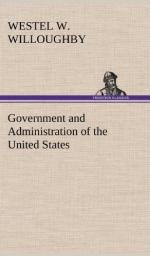The Treasurer of the United States receives and keeps its moneys, disburses them on the Secretary’s warrants, and manages the Independent Treasury System. The Independent or Sub-Treasury System was adopted by Congress in 1846. By this means the Treasury Department is independent of the banking system of the country; but has established sub-treasuries in the principal cities of the Union for the receipt and disbursement of public moneys. There are sub-treasuries in New York, San Francisco, Saint Louis, Chicago, Boston, Philadelphia, Baltimore, New Orleans and Cincinnati. For greater convenience moneys are also deposited at certain designated banks. Secretary Windom, however, began rapidly removing such deposits from the banks and announced his intention to cease the placing of deposits with any bank.
The Register of the Treasury is the official book-keeper of the United States. The Commissioners of Customs and of Internal Revenue have charge respectively of the collection of customs duties and internal revenue taxes. The Comptroller of the Currency has control of the national banks. The Chief of the Bureau of Statistics collects and publishes the statistics of our foreign commerce. In the Bureau of Engraving and Printing are designed, engraved and printed all government bonds, national bank notes, drafts, United States notes, etc., for which work about 1200 persons are employed. The director of the Mint has general supervision over all mints and assay offices. In addition to his annual report he publishes yearly a report on the statistics of the production of precious metals.
The titles of the other officers indicate the general duties of each. The whole department employs about 3,400 persons at Washington.
Some of the more important public questions coming within the province of the Treasury Department at the present time are (1) the Tariff, which has been settled for some years by the high tariff act of this Congress; (2) the silver question involving the gravest questions of finance, likewise settled for a time by the silver act of this Congress; (3) the purchase of bonds on the market as a device to reduce the surplus and prevent the accumulation of money in the Treasury; (4) the national banking system, whose basis is being removed by the rapid payment of the public debt; (5) the merits of the Independent Treasury System by which it is claimed that money is kept out of circulation and a stringency caused in the money market; and (6) the advisability of transferring the revenue marine service to the Navy Department.
_#The War Department.#_—The War Department was established August 7, 1789. There is one assistant secretary. The chiefs of the bureaus into which the department is divided, are officers of the United States Army, and a part of the military establishment. Their titles and duties are as follows. The Adjutant General of the Army, who has under him a large force of clerks, has the duty




